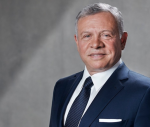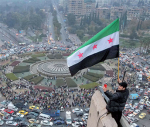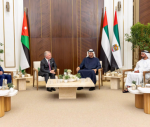You are here
No more interference in UN activities needed
Sep 20,2017 - Last updated at Sep 20,2017
Republican presidential candidate Donald Trump repeatedly vowed to “tear up” the 2015 deal between the Security Council’s five permanent members plus Germany and Iran, providing for the dismantling of that country’s nuclear programme in exchange for lifting sanctions.
After moving into the White House, Trump reiterated his intention to pull the US out of the agreement, designated the Joint Comprehensive Plan of Action (JCPOA).
So far, he has had to certify that Iran is abiding by the terms of the agreement because International Atomic Energy Agency (IAEA) monitors confirm that Iran is in full compliance. The other five signatories reject the possibility of pulling out of the JCPOA or rewriting it.
Trump has to certify the deal again next month, but threatens to hand over the responsibility to the anti-Iran Congress.
Iran’s good conduct contrasts sharply with that of the US, which has, in violation of both the terms and “spirit” of the deal, obstructed the easing and lifting of sanctions by using its domination of the international banking system to threaten to impose sanctions on countries and firms eager to invest in and do business with Iran.
Ahead of the UN annual session, Iran requested a meeting between Foreign Minister Mohammad Javad Zarif and his US counterpart Rex Tillerson to discuss US failure to meet its obligations on sanctions.
The US countered by claiming it had called upon other signatories of the JCPOA — France, Britain, Russia, China and Germany — to meet to discuss Iranian violations.
Trump has joined forces with Israeli Prime Minister Benjamin Netanyahu to contest the JCPOA, although their own national security advisers believe the deal has prevented Iran from acquiring nuclear bombs — which Tehran has abjured as being against the tenets of Islam.
Encouraged by Netanyahu, Trump is looking for pretexts to impose fresh, punishing sanctions on Iran for behaviour Washington considers challenging, including firing ballistic missiles, testing satellites and support for regional actors the US does not like.
The US claims these activities violate the “spirit” of JCPOA although they have little or nothing to do with JCPOA.
The only Iranian action that the US can construe as a violation involves ballistic missile tests, but these can only be considered violations if these missiles are designed to carry nuclear warheads, which Iran does not possess and, under JCPOA, has vowed not to develop.
Trump has suggested calling upon the IAEA to conduct intrusive inspections of sensitive Iranian military sites in order to provoke Iran into rejecting monitoring. Trump would then contend that Tehran is in violation of the nuclear deal.
He has, however, been trumped by the IAEA, which said it would not adopt his calamitous course of action.
His administration’s aim — Secretary of State Rex Tillerson admitted to a congressional committee in June — is regime change in Tehran.
Trump, who called JCOPA an “embarassment”, reiterated this message in his address to the UN General Assembly this week when he said: “The entire world understands that the good people of Iran want change.”
This comment is so far fetched as to be ludicrous at a time the entire world and 55 per cent of the citizens of the US would like to see regime change in Washington.
Iranians have reelected as their president moderate Hassan Rouhani who is doing his utmost to overcome Tehran’s hardliners to engage with the world, expand oil sales and trade, and recover from decades of sanctions.
Rouhani and his ministers were strongly behind JCPOA and expected the US, as well as other signatories, to lift sanctions. This was half hearted at best. Nevertheless, Iran has made considerable progress with half measures.
US voters elected the erratic, irresponsible, self-promoting Trump who installed in the White House and departments of government a collection of hardliners who seek to undo all the good achieved by former president, Barack Obama, and to pull out of international instruments, such as the Paris accord on climate change and the North American Free Trade Agreement, as well as the deal with Iran.
His rejection of international agreements that regulate US behaviour is based on his advocacy of “America First”, putting US parochial interests over worldwide wellbeing.
Unfortunately, Trump, more a wrecker than reformer, is in the White House at a time the UN is trying to enact reforms.
He has a lot of leverage as the US provides 22 per cent of the UN’s regular budget of $5.4 billion, and 28.5 per cent of the $7.3 billon peacekeeping budget.
The US, which is constantly in arrears, owes the UN $1.3 billion.
A critic — actually an opponent — of the United Nations, Trump has already threatened to cut US funding, although humanitarian aid agencies are weeping for lack of money to provide basic supplies for the millions of refugees around the world, including the 5 million Syrians who fled a war waged by regional and international players seeking, guess what: regime change in Damascus at a time there are far more worthy targets for removal.
In exchange for US funding, Trump could ask the UN to capitulate to US priorities on North Korea, Iran and “terrorism” in exchange for the US meeting its financial obligations.
Since US policies are generally destructive, following the US line could very well undermine the credibility and usefulness of the UN and its agencies, as well as wreak havoc.
There is already too much negative political interference in UN activities; no more is needed.












